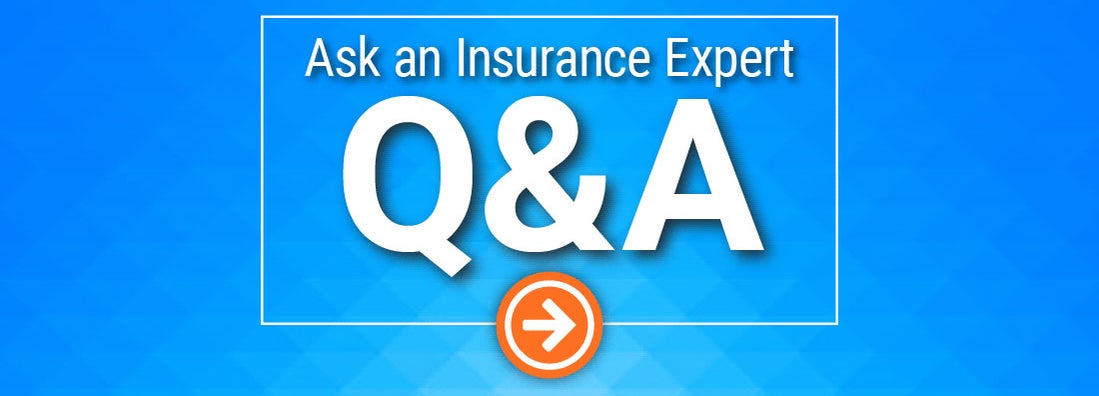Does My Homeowner's Insurance Cover Water Damage?

Paul Martin is the Director of Education and Development for Myron Steves, one of the largest, most respected insurance wholesalers in the southern U.S.

Navigation
Is water damage covered under standard homeowner's insurance policies?
When and how does homeowner's insurance cover water damage?
When does homeowner's insurance not cover water damage?
If homeowner's insurance doesn’t cover water damage, what will?
Expert(s) Found on this Page
Is water damage covered under standard homeowner's insurance policies?
As a new homeowner, I’m curious about what all is covered under my insurance. I know that a common and costly risk for homeowners is water damage. I also know that many things carry a risk for causing water damage to my home, from appliances breaking down to bad storms. Is water damage covered under standard homeowner's policies?
In many cases, yes. Unfortunately, it's not a simple black or white answer. Homeowner's insurance typically provides coverage for what’s known as sudden water damage. But there are several instances when water damage would be covered and also several when it wouldn’t. We’ll take a closer look at each side for a better understanding of exactly what standard homeowner's insurance covers when it comes to water damage.
When and how does homeowner's insurance cover water damage?
You’ll want to make sure to review your specific homeowner's policy to double-check when exactly it provides coverage for water damage, but we’ll go over some common scenarios of when most policies cover it.
Homeowner's policies often provide coverage for water damage in the following ways:
- Broken appliances: If your furnace or water heater breaks and causes water damage, you’ll generally be covered by a standard homeowner's policy.
- Vandalism: If someone vandalizes your home and that somehow results in water damage, your policy will cover you.
- Covered natural disasters: If a storm causes water damage, your homeowner's policy will protect you as long as it’s one of the covered natural disasters. Standard homeowner's policies provide coverage for lightning, fire, windstorms, hail, and blizzards. One common example of a storm causing water damage is a bad blizzard that causes a roof to cave in.
- Extinguished fires: Your homeowner's policy provides coverage for fire including any water damage accumulated while attempting to extinguish the fire.
- Frozen pipes: You’ll be covered for water damage due to frozen/busted pipes IF you as the homeowner made the attempt to leave the heat on to keep your pipes from bursting in the first place. Frozen pipes that burst due to total neglect on the homeowner's part are not covered nor is any water damage they cause.
Make sure to reach out to your independent insurance agent to review your specific homeowner's policy with you. They’ll be able to help you understand exactly what kind of protection your insurance offers for water damage.
When does homeowner's insurance not cover water damage?
It’s equally if not MORE important to understand when your homeowner's policy doesn’t provide coverage for water damage. We’ll go over several common scenarios when water damage is NOT generally covered by homeowner's policies.
Homeowner's policies often do NOT cover water damage resulting from the following:
- Neglect of maintenance/upkeep: It’s considered the homeowner’s responsibility to maintain working order in the home. If a homeowner fails to maintain their plumbing and it eventually breaks down and causes a bunch of water damage, their insurance company probably won’t cover it.
- Flooding: Floods are not a covered natural disaster under homeowner's insurance. You’d need a separate flood insurance policy to help you out with any water damage caused by a flood.
- Sewer backups: Sewer backups are not covered by homeowner's insurance policies, and any resulting water damage caused by them would not be covered either.
- Water damage caused by earth movement: Areas of the country with expanding/contracting soil may cause cracks in the foundation of their homes. Earth movement is not a covered peril under homeowner's insurance. Any water damage caused by mudslides or earthquakes would also not be covered.
If you’re concerned about not being covered for water damage in one of the above scenarios, you can work with an experienced independent agent to find a policy that will cover you. We’ll explore a couple of options in the next section.
If homeowner's insurance doesn’t cover water damage, what will?
There isn’t an insurance policy out there that will cover a homeowner in the event of their negligence and failure to maintain the home. So, busted plumbing due to an inattentive homeowner won’t be covered under insurance, and you’d have to pay out of pocket for the water damage and other repairs.
As for flooding, you’d need a flood insurance policy. If you live in a flood zone, you’ll more than likely need coverage. Flood insurance can be purchased through the National Flood Insurance Program, and you’ll need an agent to help you.
Earthquakes, mudslides, and soil issues that result in water damage can be covered under a special earth movement insurance policy. If you’re concerned about this type of disaster, your independent insurance agent can help you locate this type of coverage as well.
https://www.iii.org/article/homeowners-insurance-basics
